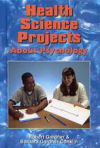A Recipe for Happiness Additional Information
Share this:
- Share via email (Opens in new window) Email
- Click to share on Facebook (Opens in new window) Facebook
- Click to share on X (Opens in new window) X
- Click to share on Pinterest (Opens in new window) Pinterest
- Click to share on Reddit (Opens in new window) Reddit
- Share to Google Classroom (Opens in new window) Google Classroom
- Click to print (Opens in new window) Print
For more details about types of smiles, go to en.wikipedia.org/wiki/Smile(Wikipedia).
Laughter is another happiness-related subject that scientists study. To learn more, see en.wikipedia.org/wiki/Laughter(Wikipedia).
For more information about Sonja Lyubomirsky and her work, visit www.faculty.ucr.edu/~sonja/ (University of California, Riverside).
McDonagh, Sorcha. 2004. Computers with attitude. Science News for Kids (March 3). Available at http://www.sciencenewsforkids.org/articles/20040303/Feature1.asp.
Sohn, Emily. 2006. Smiles turn away colds. Science News for Kids (Dec. 20). Available at http://www.sciencenewsforkids.org/articles/20061220/Note2.asp.
______. 2005. Lightening your mood. Science News for Kids (April 7). Available at http://www.sciencenewsforkids.org/articles/20050427/Note3.asp.
______. 2004. Worlds of self-esteem. Science News for Kids (Sept. 1). Available at http://www.sciencenewsforkids.org/articles/20040901/Feature1.asp.
Books recommended by SearchIt!Science:
 |
Depression (Diseases and People) — Alvin Silverstein, Virginia Silverstein, Laura Silverstein Nunn — Alvin Silverstein, Virginia Silverstein, Laura Silverstein Nunn
Published by Enslow Publishers, 1997.
In the United States, an estimated 17.6 million people suffer from depression each year. “Everyone gets ‘the blues’ … but clinical depression is a more serious condition,” according to the authors of this book. Is depression inherited, or is it triggered by stress? Get the facts on chronic mood disorders, including major depression, bipolar disorder, and seasonal affective disorder (SAD), in this book. It contains chapters on the symptoms, treatment, and prevention of these forms of depression as well as personal stories from many individuals. A glossary, a list of readings, and an index are included. |
 |
Health Science Projects About Psychology (Science Projects) — Robert Gardner, Barbara Gardner Conklin — Robert Gardner, Barbara Gardner Conklin
Published by Enslow Publishers, 2002.
Are you an optimist or a pessimist? Is your best friend an introvert or an extrovert? In this book, you’ll find exciting science projects and experiments that will help you answer these questions and many more. Explore the science of psychology with this book. Design and implement your own psychological research for the next science fair! |
 |
Bipolar Disorder, Depression, and Other Mood Disorders (Diseases and People) — Helen A. Demetriades — Helen A. Demetriades
Published by Enslow Publishers, 2002.
“When an individual is suffering from a mood disorder, things can look pretty ominous,” states this introduction to mood disorders. The book begins with the case of Heather, a sixth-grade girl who has lost interest in her normal activities and feels blue all the time. It discusses the four types of stress and some ways to alleviate it through such strategies as editation. The book also discusses the different types of bipolar disorders and depression. The symptoms commonly associated with mood disorders—for example, hopelessness and helplessness, pessimism, and social withdrawal—are described. Then, the book delves into the treatments available for mood disorders, including insight therapies, behavior therapies, and medication. The book surveys the history of mood disorders, and includes a chapter on mood disorders, society, and culture. |
Power Words
psychiatry The branch of medicine that deals with the study and treatment of mental illness.
psychology The scientific study of mental processes and behavior.
Copyright © 2002, 2003 Houghton-Mifflin Company. All rights reserved. Used with permission.
